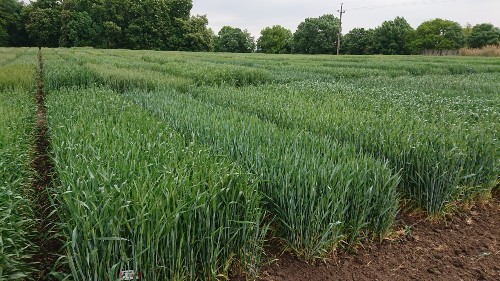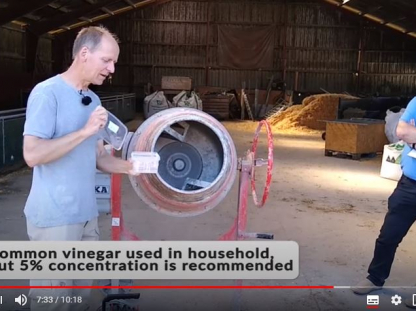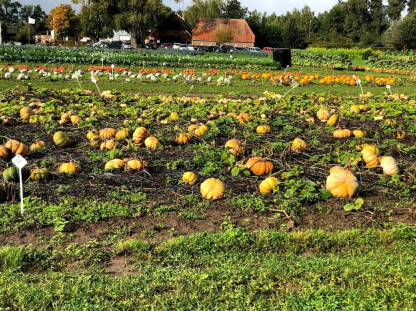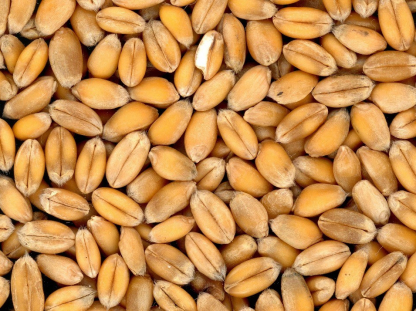Organic seed production in Hungary: the current situation
Seeds are the basis of agriculture, so farmers who follow the principles of organic farming should also start from organically produced seeds.
Under current European Union Regulation (EC) 834/2007, organic farmers are required to use certified organic seed in their agricultural activities. However, just as in most EU member states, the availability of organic seed is limited in Hungary. As a result, organic farmers can request an exemption (known as a derogation) from the obligation, and be granted permission to use untreated conventional seeds. The aim of the recently established Organic Seed Working Group set up within the framework of the Hungarian Seed Association (HSA) is to improve the availability, expand the variety offer and to encourage the use of organic seeds by highlighting their advantages.
In order to boost organic breeding seed production and use and thus further improve the performance and sustainability of organic agriculture, LIVESEED H2020 project (www.liveseed.eu) has been launched, in which the Research Institute of Organic Agriculture (ÖMKi) and the Martonvásár Agricultural Institute (ATK) of the Eötvös Loránd Research Network are participating from Hungary. During the implementation of the project, a number of surveys and workshops related to organic seed production and use have been organized.
At these events, participating experts highlighted certain general points considered as advantage regarding the situation in Hungary, such as internationally recognized high-quality seeds, high standards of professional and technological training, outstanding environmental conditions, good soil quality, and an extensive and outstanding genetic base. The broad and diverse range of conventional and GMO-free varieties are likewise an advantage.
At the same time, several significant problems and shortcomings were identified, including the low market share of organic seeds in Hungary, the contract-based export of the majority of organic seeds produced in the country (which is a significant quantity), the higher price of certified organic seeds compared to conventional untreated seeds, along with an insufficient communication about the benefits of the former, the lack of small-scale, organic cultivar trials, and the fact that the use of the organic seed database maintained by the National Food Chain Safety Office (NFCSO) is not widespread either among farmers or seed producers.
Organic Seed Working Group
As a result, the workshop participants agreed that the cooperation of all representatives of the sector is necessary to achieve the stated goals, thus leading to the establishment of a professional working group. After several meetings, and due to the enthusiasm of the participants, the HSA offered to restart the Organic Seed Working Group. Representatives of Hungarian research and breeding institutes involved in organic agriculture, seed production and supplier companies, organic certification bodies, The Bioculture Association, HSA, NFCSO and the Ministry of Agriculture are among the new members of the working group, which was formed in March 2020.
.jpg)
The Organic Seed Working Group (Photo: ÖMKi)
Organic variety testing network
The members of the Organic Seed Working Group agreed that small-plot organic postregistration variety testing should be launched with just a few crops or crop groups, and then gradually to expand to other species based on the experience gained. As a first step, cereals, including common wheat, were selected, as by area under cultivation, this is one of the most widespread crops grown in Hungary under organic conditions.
The first result of the Organic Seed Working Group was the small-plot organic winter wheat variety test network launched in October 2020 and coordinated by ÖMKi, at seven locations across the country. The results of multi-year experiments on more than 20 wheat varieties in seven locations nationwide (Debrecen, Karcag, Kiszombor, Martonvásár, Szár, Eszterágpuszta and Fertőd) can help organic farmers select the varieties which are best performing under their local conditions.

Small-plot organic winter wheat variety test in Martonvásár (Photo: Dr. Mikó Péter)
Organic Seed Database
EC Commission Regulation 889/2008 requires that all EU Member States operate an organic seed database, on the basis of which certification bodies approve or reject derogation requests for the use of conventional untreated seeds. In the long run, in order to achieve the above-mentioned goals, it is essential to develop the Organic Seed Database operated by the NFCSO, and thus to expand the range of seed items in the database.
Additionally, the demand for organic seed in a given country could be better met if farmers also had access to the seed supply of neighbouring countries, or to the supply of other countries with similar soil and climatic conditions. Currently, seed traders have to upload and update their offer separately to each country’s national organic seed database (often in the language of that nation). To improve the situation, a common European router database is being set up under the LIVESEED project. This will help create a level playing field in the trade of organic seeds and increase transparency in their supply. Of course, the router database allows seed distributors to select the countries where the variety is expected to perform well, and where the seed can be shipped at a reasonable cost. The related national databases will continue to be used, and will not be replaced by the router database, but their content will be made available and modifiable on a central interface, which is expected to be operational from the spring of 2021.
Within the framework of the working group, seed producing and marketing companies have agreed to upload some of their domestic produced organic seed lots to the database every year, thus encouraging farmers to use certified organic seed and, at the same time, to try new varieties. These varieties have generally performed well under organic conditions in previous years, so their cultivation may pose a lower risk than, for example, conventional, untreated seeds from varieties with unknown performance under organic conditions.
The Organic Seed Working Group so far has proved to function effectively, and we hope to be able to report on further forward-looking initiatives in the near future.
The full article has been published in the Agrofórum 2021/1. magazine.








